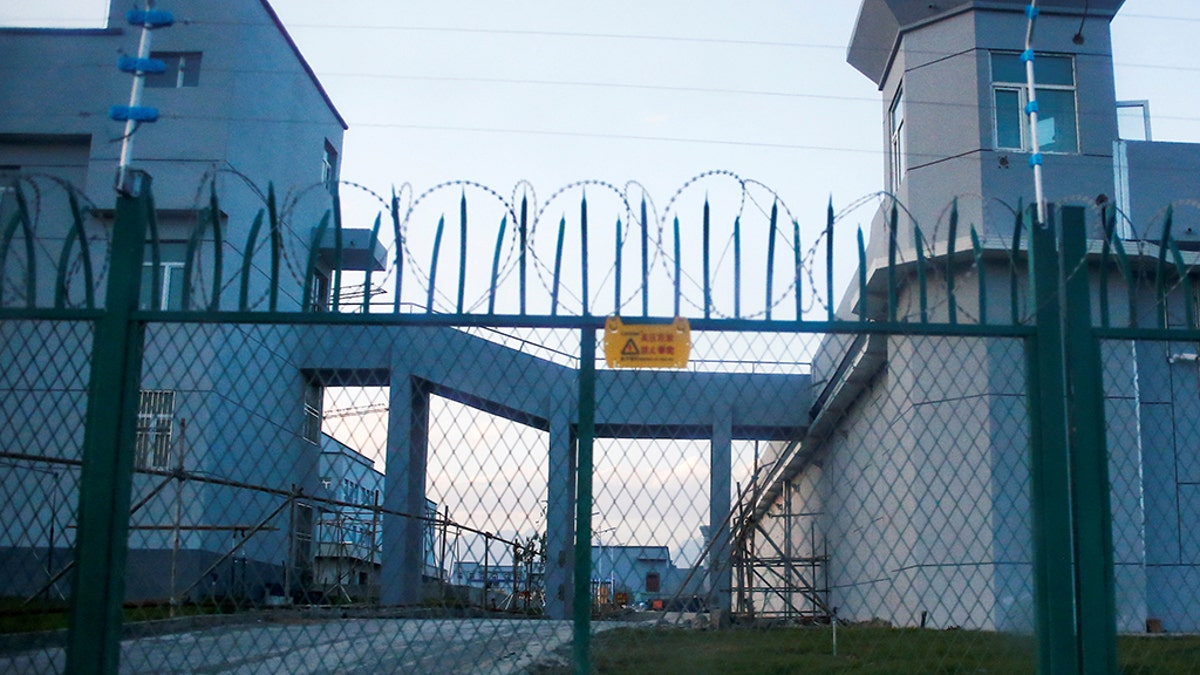Rep Mike Gallagher raises concerns over American companies' possible connection to China’s Uighur human rights abuses
Rep Mike Gallagher raises concerns over American companies' possible connection to China’s Uighur human rights abuses and discusses how Congress can unite to fight against those abuses.
Wisconsin Republican Congressman Mike Gallagher wants congressional hearings with Apple CEO Tim Cook and the NBA’s Adam Silver over dealings in China connected to forced labor of Uighur Muslims.
“Ultimately, if they're not willing to have that conversation, I think we have to subpoena the CEOs of Apple, Hollywood executives and the NBA just to get a better understanding for the American people about how China is leveraging its economic power to coerce American citizens and craft certain narratives that are really damaging around the world,” said Rep. Gallagher in an interview with Fox News Digital.
Gallagher explained that he would initially be open to closed-door discussions with leaders, like Cook and Silver, to answer questions about pressure that their organizations have felt from China. He added, however, that if they were not willing to have those types of discussions, that Congress should subpoena them.
China’s ruling Communist Party is accused of mass detentions, forced labor and other abuses against Muslim minorities in Xinjiang. Senator Josh Hawley, R-Mo., echoed Gallagher’s sentiments on Fox and Friends to investigate U.S. companies that potentially benefit from slave labor.
“Concentration camps, for instance, help make those Nike uniforms that the NBA wears,” said Hawley. “They should pledge right now -- Nike, the NBA, and all these American corporations, that they will not use forced slave labor.”
Gallagher told Fox News that he views the heinous human rights abuses as an opportunity for unity between Republicans and Democrats, adding that Rep. Ilhan Omar, D-Minn., has been an influential voice in speaking out against the forced labor of the Uighur Muslims.
“I don't agree with Ilhan Omar much, but she recently sent letters to over 30 CEOs of top companies, including Tim Cook, asking them to reexamine their reliance on forced labor of Uighur Muslims,” said Gallagher. “We recently had a bill relative to the Uighurs that passed with an overwhelming majority in Congress, so I think we have an opportunity here to really unite some strange bedfellows.”
President Trump signed the Uighur Human Rights Policy Act into law on June 17, 2020. It condemned the detention of more than 1 million Uighurs, Kazakhs and other minorities in so-called reeducation camps, where they are reportedly subjected to political indoctrination, torture, beatings and food deprivation, as well as denial of religious and linguistic freedom.
According to Reuters, a senior Trump adminstration official denounced Huawei and ZTE over their involvement in “the modern day concentration camps of over 3 million Muslims.” Gallagher said that the accusation was not surprising but served as additional evidence of Chinese President Xi Jinping’s goal of global control.
“It's about total ideological control,” said Gallagher. “A world in which Huawei and ZTE dominate global telecommunications is a world in which Xi Jinping and his Communist cadres are able to tell everybody what they can and cannot think.”
The U.S. has lobbied its allies to shun Huawei because it says the Chinese government could use the company’s technology to spy on Western nations. Great Britain announced that it has blocked plans to give Chinese Huawei a role in the U.K.’s new high-speed mobile phone network.
Gallagher went a step further and said that he does not think that companies, like the American microchip company Qualcomm, which supplies the Department of Defense and intelligence community, should be doing business with companies like Huawei and ZTE.

A perimeter fence is constructed around what is officially known as a vocational skills education centre in Dabancheng in Xinjiang Uighur Autonomous Region, China September 4, 2018. Police in Dabancheng detained two Reuters journalists for more than four hours after the photos were taken.
“I think the argument I always hear from companies like Qualcomm is that well if we don't do it, someone else will, or more importantly, the Chinese will do it domestically or steal our tech,” said Gallagher. “To that, I say that's what they're going to do anyways, that's the essence of 'Made in China.'”
The U.S. has led a worldwide campaign to convince foreign governments to bar Huawei from their advanced telecommunications networks, arguing that allowing them into those systems would lead to violations of their citizens’ privacy. The U.S. has also threatened NATO and other allies with curtailments or suspensions in intelligence sharing and cooperation should they allow Huawei components or technology in their high-speed networks.
The Associated Press contributed to this report
Emily DeCiccio is a reporter and video producer for Fox News Digital Originals. Tweet her @EmilyDeCiccio.










































